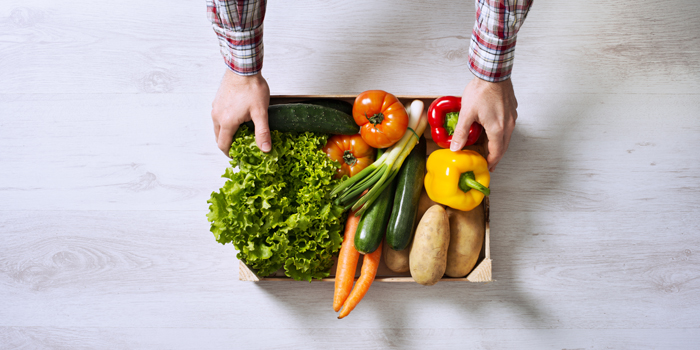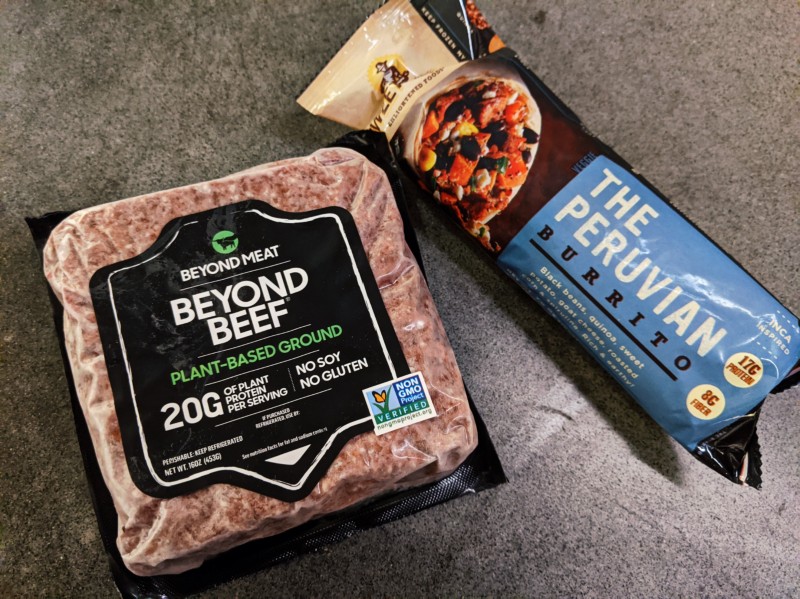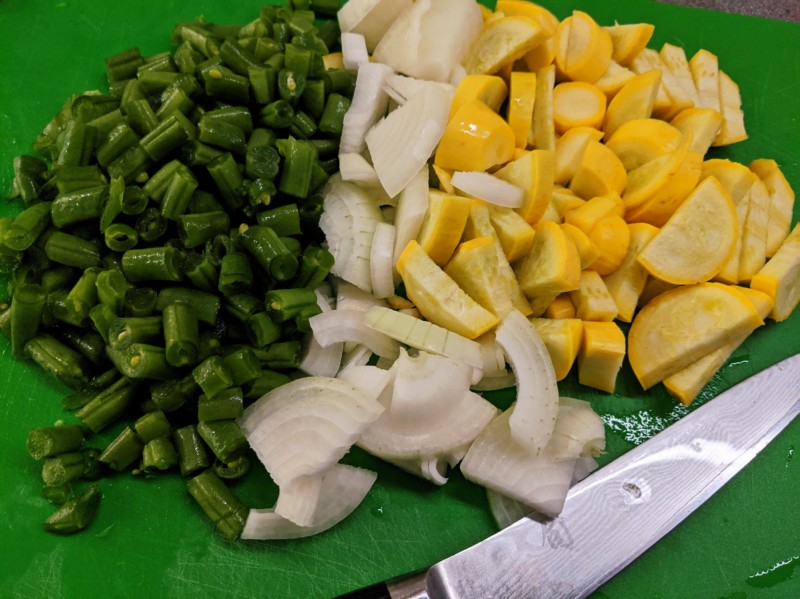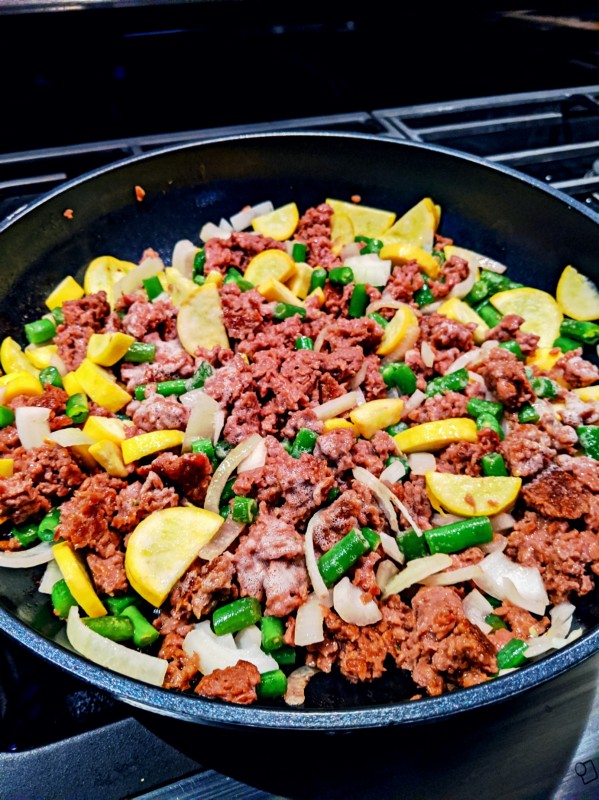
I’m plant-based now. I laugh at the look I get from people familiar with both my competitive bodybuilding career and my love of all things meat-based. I confess to mocking vegans and vegetarians. “You’re what?!” they exclaim. No, I’m not 100% plant-based. However, I did spend a solid four weeks on a plant-based diet a couple of months ago.
I watched the film The Game Changer produced by James Cameron and Arnold Schwarzenegger, and although I believe it’s a well-crafted piece of entertaining propaganda, I elected to give the plant-based diet a try. Truthfully, I did it more to prove that I still possess discipline, as I’m a few years removed from competitive bodybuilding. It sounded like a good challenge, and I don’t do anything halfway. Hey, calorie restriction is tough, but excluding meat should be a piece of vegan cake.
RECENT: Relationship Roadblocks to Overcome
I’m not going to refute the science, or lack thereof, when comparing a meat- and plant-based diet. I had and still do not have an agenda. My diet while competing relied heavily on non-vegan protein sources: chicken, eggs, beef, whey, and fish. Nonetheless, here is a real-world examination of a former professional bodybuilder who went plant-based.

Mental Implications
The first three days surprised me. I badly craved a steak or hamburger. I killed the craving with large bowls of oatmeal. By day four, Christina, who elected to do the same, caved. I came home to a plate full of hamburger patties. She felt weak that morning in the gym and said, “Forget this plant-based diet!”
I didn’t eat a burger that night. My commitment remained unwavering. I was going plant-based for four weeks. Coincidentally, my craving for meat subsided the next day and never really returned. I likened it to sweets, which I rarely crave until I start a bodybuilding diet. Knowing you can’t eat something seems to make it that much more desirable.
Physical Implications
If I was weaker in the gym, it was nearly imperceptible. I don’t push myself with heavy weights anymore because favorable body composition, mobility, and training efficiency are more important. My bad lower back from lifting stupid weights in my 20s and 30s is another reason I could care less about a personal record. It’s not worth being crippled for four days.
I felt better energy-wise, possibly from the fact that I consumed more carbohydrates. Oatmeal, basmati rice, and obviously a lot of vegetables became staples. I avoided sugar as always. Christina felt that I got leaner. Not significantly, but I did feel less water retentive, which is odd considering that carbs were higher. I’m guessing that overall inflammation went down and that my muscles were fuller from greater glycogen storage via carbs, thus giving me a slightly leaner appearance. My weight remained consistent from 204-208 pounds.

Health Implications
At the time of writing this article, I have not done blood work. I typically do it twice a year, so if you’re curious, email me in another couple of months, and I’ll share the results. I eat healthy, plant-based or meat-based aside. So, I’m not expecting anything Earth-shattering when I do blood work next. Here is what I can tell you from an internal perspective: my digestive system vastly improved.
I would not describe my bowel movements as “normal” before I went plant-based. This began the last two years in which I competed in bodybuilding. My gut became sensitive to a lot of foods, but particularly whey protein and eggs. I turned to probiotics, fermented vegetables, and digestive enzymes to remedy the problem, only to find that they contributed horribly to the situation. I feared traveling far from a bathroom when eating a meal.
RELATED: Nutrition, Supplement, and Drug "Facts" Explained
I have eliminated a ton of foods from my diet during the past few years. Coincidentally, most were whey-based and anything egg-related (bodybuilding protein staples). The positive impact on my digestive system from a plant-based diet cannot be understated. It is the reason I continue to eat 80% plant-based. Bowel movements became normal, and fermented vegetables now help versus hurt me. Gut health impacts the entire body so significantly that my plant-based experience prompted a big mindset shift for me personally.
However, in my limited experience with a plant-based diet, I noticed several drawbacks from a health standpoint. I’ve listed them below:
- Soy is a prevalent ingredient in many vegan products. I avoid soy at all costs due to its high phytoestrogen content and due to the fact that an estimated 93% of soy is genetically modified, resulting in higher levels of toxins.
- Canola oil is hard to avoid in the plant-based meat alternatives. Meat alternatives, like Beyond Meat, taste surprisingly good, but canola oil is high in polyunsaturated fat, easily turns rancid, and creates inflammation in the body. Avoid “vegetable” oil, particularly canola.
- Common in all diets, plant- or meat-based, is B-12 deficiency when sourced exclusively from food sources. Supplement daily with methyl B-12.
- This diet maintains adequate protein intake when sourced exclusively from plant sources, but this may be a side benefit because bodybuilders tend to overconsume protein. Remember that carbs are protein sparing. Pea protein is a great plant-based alternative containing 9% leucine by weight compared with whey’s 11%. Leucine is one of nine essential amino acids that promote protein synthesis and anabolism. Pea isolate removes most of the fiber and starch, making it easier to digest.
My Diet
I will touch briefly on my current diet because inquiring minds might find it interesting. No, it’s not 100% plant-based.
AM workout (four days/week) - Biotest Plazma (yes, it contains casein hydrolysate)
Breakfast - Oatmeal and frozen berries (no added sugar)
Mid-morning - Biotest Finibar (yes, this contains whey) with coffee
Lunch - Basmati rice with vegetables (peas, corn, onions, green beans) and a plant-based burrito. Amy’s Organic and Sweet Earth are two of my favorite brands.
Mid-afternoon - Bone broth
Dinner – Typically, plant-based meat, vegetables, and a carb source (potato, farro, rice). Christina is an exceptionally talented and creative cook. Indian dishes are often vegan and very flavorful.
Our go-to plant-based food sources are oats, basmati rice, peas, garbanzo beans, farro, zucchini, yellow squash, onions, peppers, corn, green beans, kale, and a wide assortment of fermented vegetables. I still eat chicken on occasion (I love coconut curry chicken) but eat far less beef or pork.
In Conclusion
Before you pass judgment on a plant-based diet, my humble suggestion is that you try it for a month and then move forward based on your results or lack thereof. You might be pleasantly surprised by how you feel, and you may thus utilize plant-based food more regularly.
Andrea De Martin © 123rf.com












The reduction in inflammation in the body is a big peice -- it took me about 2 years after going vegan for me to realize my knees were no longer in pain from a decade of competitive basketball -- and my shoulders were no longer in pain from questionable bench pressing programs.
On the topic of the phytoestrogens in soy -- how much research have you done on the topic? I still eat a good amount of soy; some of the research I have seen points to the "estrogen" claim just being more propaganda from animal ag. Wouldn't you fear the estrogen being consumed in dairy? (the lactation of a pregnant mammal??)
I appreciate the feedback. Yes, the factory farming issue is a completely different aspect for which I began eating a more plant-based diet. The inhuman treatment of animals and the environment is something that bothers me.
Regarding soy, my thoughts are probably derived more from the fact that I have a sensitivity to soy. I'm also a skeptic on GMO. I have recently bought and am experimenting with tempeh. I've never been a big dairy consumer, aside from my love of manchego and goat cheese. Your argument against dairy in relation to estrogen makes sense to me.
All the best,
Mark
I went 100% plant based for 4 weeks. As per what I wrote: I will touch briefly on my current diet because inquiring minds might find it interesting. No, it’s not 100% plant-based. :) This was AFTER the 4 weeks.
Best regards,
Mark
Tempeh is an optimal form of soy, it's fermented and easier to digest.
All the best and stay vegan! :-)
Federico
I personally do not know if vegetable oils inhibit testosterone production. Most of my understanding is that it oxidizes and leads to inflammation in the body. As you may know inflammation leads to a host of other health issues. That said, I would not be surprised if your statement is true.
All the best,
Mark
I tried a plant based only diet during lockdown when I couldn't train but since returning to the gym have struggled to meet the basic 1g per lb of bodweight guidance for protein, so reintroduced animal sources.
How much protein was your above diet example yielding please?
Thanks in advance Mark.